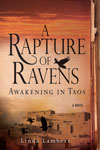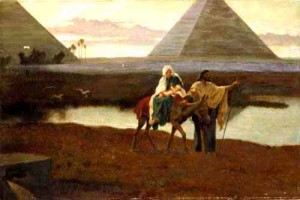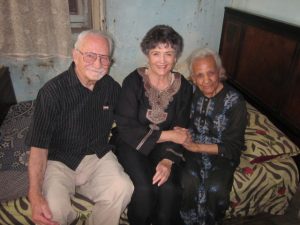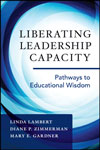political essay
The Muslim Brotherhood & The Cairo Codex-Summary
Saturday, August 12th, 2017
When I was a child, my mother told me that she was reincarnated from an Egyptian. Later, I taught Egyptian history. Then, in 1989, an invitation came to live and work in Egypt as a State Department Envoy—my dream assignment. We lived in the wonderful country from 1989 to 1991, then returned over the next two decades for months at a time. With these experiences, we learned to treasure the country and its people.
From these experiences, the saga and journeys of anthropologist Justine Jenner were born and took form in The Justine Trilogy in the historical novels The Cairo Codex, The Italian Letters and A Rapture of Ravens: Awakening in Taos. These novels begin with the lead up to the revolution and end with the election of President Morsi, a prominent member of the Muslim Brotherhood.
One cannot engage in such research and writing without being fascinated by the compelling story of a group such as the Brotherhood that began in 1928 to resist British colonization, played a violent role during WWII and the 1952 revolution, influenced Middle Eastern radicalism, rose to prominence and the presidency, then suffered a coup and fell into disgrace and terror.
What a roller coaster ride! The future is difficult to divine.
This is just the tip of the iceberg. Want to learn more? Read The Justine Trilogy.


The Italian Letters by Linda Lambert

Posted in A Rapture of Ravens, Arab press, Egypt, Italian Letters, Muslim Brotherhood, political essay, The Justine Trilogy | No Comments » | Leave a Comment
The Muslim Brotherhood & The Cairo Codex 10
Wednesday, August 9th, 2017

So, how has labeling the Brotherhood as a terrorist organization affected Egypt? This is my take, as Fareed Zakaria would say. The Brotherhood response to the coup could have been expected. They fought back; there was violence in the streets. Now labeled as a terrorist organization by El Sisi, they met those expectations, unfortunately including the burning of Christian churches. The traditional leadership lost control.
This loss of control by the Brotherhood’s old guard meant the peeling off and radicalization of younger members. “We tried democracy, the ballot box,” they shouted, “and see where that got us.” Many joined ISIS, thus bringing more random violence to the Sinai, the western desert—and the cities along the Nile as well.
The insistence by President El Sisi and his administration that all Brotherhood members are terrorists has meant a failure to distinguish between those members who would like to return to civility and those who are radicalized. A new form of rapprochement is needed. In the meantime, the current military government uses the threat of terror to keep a tight control on civil rights.
The next essay–# 11—will bring us full circle back to The Justine Trilogy and how these novels unfolded in the light of changes in the Middle East.
Posted in Arab press, Egypt, Muslim Brotherhood, political essay, The Justine Trilogy | No Comments » | Leave a Comment
The Muslim Brotherhood & The Cairo Codex 9
Monday, August 7th, 2017
For the moment, let’s journey back to the revolution. From A Rapture of Ravens: Awakening in Taos: “Justine was gripped by deeply unsettling fears for her lover Amir, his leadership role with the youth of Egypt placing him at great risk of being arrested. The turmoil in the Middle East was unprecedented, clearly, so perhaps none of the old rules applied. This is a new game, in a new world bursting from the ground up, a popular revolution quickened by social media. But then what? She knew that if Mubarak were removed, Egyptians would still have the military and the Brotherhood, since no one else was as organized. Perhaps with Amir’s help, those who led the January 25th revolution would form themselves into a focused political movement. Perhaps.
Justine gripped the blanket more firmly around her chilled body and returned to the kitchen for the last dregs of coffee. On the couch, she curled her stocking feet under her and stared at the screen. Tahrir Square was crowded with thousands of Egyptians chanting, “Down with Mubarak,” arms flailing the air, placards in Arabic demanding the president’s resignation. The crowd throbbed, like a singular heart beating in concert.”
Justine had cautioned herself, be careful what you ask for.
The last essay asked “What now?” Now that the military is back in charge—what changes have we seen? El Sisi and his administration have created two areas of deep concern, with tragic long-term consequences, I fear. First is the suspension of significant civil rights: the right to assemble, rule of law, free speech. These measures, so they say, have been taken in response to the radicalization of the Muslim Brotherhood and random terror. Labeling the Brotherhood as a terrorist organization has dissembled the previously cohesive group. Is it possible for Egypt to normalize random terror?

Flight into Egypt
Posted in A Rapture of Ravens, Arab press, Egypt, Muslim Brotherhood, political essay, The Justine Trilogy | No Comments » | Leave a Comment
The Muslim Brotherhood & The Cairo Codex 8
Tuesday, August 1st, 2017
I was naïve and deceived by the 2011 Revolution. I thought it was a genuine upsurge, an emergence of the democratic spirit. And, of course it was for those young peoples involved. But two forces really represented what is being called “the deep state” in the US now. This “deep state” (those forces secretly in control) was represented by the Muslim Brotherhood and the military.
As so often happens, the enthusiasm and passion that led the youthful uprising met with a sobering reality soon afterward. There were multiple agenda and multiple leaders. So, the masses couldn’t select and get behind a single candidate. This was not a problem for the Brotherhood. Organized and disciplined, the group was soon legalized and formed the Freedom and Justice Party. Brotherhood leader Mohamed Morsi won the popular vote in the 2012 election. After decades of struggle, the Muslim Brotherhood now led Egypt. Amazing.
However, one year later, with the help of military manipulation, Morsi was removed from office in a military coup. El Sisi was installed as the interim president. (Note that the US didn’t call it a coup—an embarrassing political choice—since identification as a coup would have meant the removal of all US military aid to Egypt.) The Brotherhood fought back with violent means and churches were burned. The organization became an illegal, terrorist organization. Morsi was jailed.
The military—which was supposedly overthrown with the fall of Mubarak—was back in charge. What now?

Tags: El Sisi, The Cairo Codex
Posted in Arab press, Egypt, Muslim Brotherhood, political essay, The Justine Trilogy | No Comments » | Leave a Comment
The Muslim Brotherhood & The Cairo Codex 6
Saturday, July 29th, 2017
 A review by The Historical Novel Society suggested: “ The author of The Cairo Codex shows a surprisingly in-depth, and even prescient, knowledge of modern Egypt and the conflict between the Muslim Brotherhood and other segments of society.”
A review by The Historical Novel Society suggested: “ The author of The Cairo Codex shows a surprisingly in-depth, and even prescient, knowledge of modern Egypt and the conflict between the Muslim Brotherhood and other segments of society.”
This was my goal: to chronicle the unexpected surge of the Brotherhood as well as the inherent dangers of its rise. While the organization was participating in the radicalization of other parts of the Middle East and favoring Shariah law, in Egypt their public stance was intended as a more accepted political influence.
The Cairo Codex also details the sources of the Coptic (Egyptian Christianity similar to Greek Orthodoxy)-Islamic tensions arising from history and beliefs. For instance, belief in the trinity, claim Muslims, suggest that Christians are polytheistic. The puzzlement to many is that all Religions of the Book began with Abraham. A common history.
By “prescient,” the Society meant a description of conditions that would lead to revolution. Set in the year 2006, the Codex anticipated the 2011 Revolution, which we will discover in Part 7, was not what it seemed.
Tags: The Cairo Codex
Posted in Arab press, Egypt, history, Muslim Brotherhood, political essay, The Justine Trilogy | No Comments » | Leave a Comment
The Muslim Brotherhood & The Cairo Codex 5
Thursday, July 27th, 2017
By the time I arrived in Egypt in 1989, the Brotherhood was steadily gaining seats in Parliament as an Independent Party (the Brotherhood label was forbidden under Mubarak also). Each year the numbers increased.
Brotherhood success, as described in my last installment and in The Cairo Codex, can be primarily attributed to two public factors: 1) Organization and discipline and 2) An important focus on social services.
Near the beginning of my service as a US state department envoy in Egypt, I asked the acclaimed sociologist Andrea Rugh, author of Reveal and Conceal and many other books on women in Egypt, how to reach the local communities directly. By directly, I meant without going through governmental agencies or even NGOs.
Andrea introduced my husband and I to Madam Ansaf (see photo with the three of us), an angel of mercy if there ever was one, who tended directly to the poor and offered micro-loans for everything from weddings to bean pots. It was through Madam Ansaf that we became intimately acquainted with the social services of the Brotherhood.
Next, the lead up to the 2011 revolution which was not as it seemed…

Tags: Andrea Rugh
Posted in history, Muslim Brotherhood, political essay, The Justine Trilogy | No Comments » | Leave a Comment
The Muslim Brotherhood & The Cairo Codex 4
Tuesday, July 25th, 2017
Meanwhile, in 1948, the Brotherhood was banned because of the 1948 assassination of Egypt’s prime minister, Mohamed Pasha. The assassination by a Brotherhood member was thought to be revenge for crackdowns on the organization. While the Brotherhood supported the revolution, the Junta that took charge immediately afterwards refused to share power. The Brotherhood reaction was a violent upheaval that destroyed massive amounts of property. So, when Nasser assumed the presidency in ’54 and experienced his own assassination attempt at the hands of the Brotherhood, he abolished the organization and imprisoned thousands.
By 1965, another assassination attempt caused yet another crackdown. However, the Egypt Brotherhood then largely rejected a more radical, violence ideology that was taking root in other countries and sought more peaceful strategies. By now, the organization well-organized, disciplined and largely professional.
Yet, radicals in the organization possessed and projected significant influence from the prisons. They were instrumental in training Hamas and Hezbollah in the art of securing mass loyalties. These were the same strategies working at home in Egypt: support the poor and helpless, provide essential medical care, pack warehouses with school uniforms and family necessities. It is not surprising that the Brotherhood was enlarging its following and surging in the polls by the late ‘80’s.

Tags: Hamas, Hezbollah, Nasser
Posted in Arab press, Egypt, history, Muslim Brotherhood, political essay, The Justine Trilogy | No Comments » | Leave a Comment
The Muslim Brotherhood & The Cairo Codex 3
Sunday, July 23rd, 2017
When my husband, Morgan, and I were moving to Egypt in 1989, we read the Alexandria Quartet by Lawrence Durrell. The first book is Justine, after which the protagonist of the Justine Trilogy is named. Durrell captured the blend of metaphysics (complex world views) and human psychology so pertinent to this part of the story. It vividly describes Egypt in the late 30’s and 40’s, the time when the Brotherhood is becoming more directly active in politics. Two engagements are of particular interest.
The Brotherhood’s most public venture into politics was involvement in the chasm between Palestine and Zionism. The organization raised money to support the worker revolt in Palestine. Many think of the conflict in Palestine as beginning with the 1948 sanctioning of statehood for Israel (a war to which the Brotherhood sent volunteers). Not so. It began in the 19th century with vast Jewish purchases of Palestinian lands. In The Cairo Codex we learn that Mary of Nazareth came from Palestine and finds pleasure in the freedoms she experiences in Egypt.
It is not surprising that Egyptians harbored strong sympathies for the Nazis during WWII. After all, they were being colonized by the British. And, anti-Semiticism was very strong. Hopeful that the war would bring the end to British colonization, the Brotherhood would have to wait for Nasser and the quiet revolution of 1952….


Tags: Lawrence Durrell, The Alexandria Quartet
Posted in Arab press, history, Muslim Brotherhood, political essay, The Justine Trilogy | No Comments » | Leave a Comment
Reflections on the election: Sexism & Racism in America
Friday, November 11th, 2016
I don’t seem able to process my anger or grief over this election, so this response is my way of expressing what I believe and know to be true. A brief examination of history and culture in America explains what happened in this election, although many of us got side-tracked by what is right. (My thoughts below are not to say that Hillary didn’t have her flaws or baggage. But compared to Trump, she is nearly flawless.) We are perennially naïve. As a woman who grew up in Kansas, I should have known that I was kidding myself to think that a woman could be elected president in America at this time in history.
Bernie millennials lost their futures. I was afraid that Bernie had unearthed an innocent group of individuals who would “take their dollies and go home” when they didn’t get what they wanted. If they had shown up in more numbers, Bernie would have been chair of the Senate Budget Committee with tremendous power to fully implement Dodd-Frank (regulation of big banks and corporations), the Supreme court could have overturned Citizens United, college could have become affordable, civil rights and the environment protected and on and on.
As election scholars, David McCuan among others, have pointed out that Bernie was not electable. The right wing had kept their hands off Bernie because he was chipping away at Hillary. If he had been the candidate, it was clear that a Jewish, socialist, atheist individual could never be elected in middle America. Why did he do so well in the primaries? He, too, was a gruff father figure and thus better than a woman.
Gender politics. A Palestinian friend and I once considered writing a book to be titled “Middle West meets Middle East.” The thesis drawn from our experiences as women in both settings was that there was little difference between the two cultures. Our experiences were strikingly similar. Few women that I know in that part of the world consider a woman qualified to be president. Does it surprise anyone that 27% of Latino males voted for Trump? Many Latinos—and blacks– reported that a woman is unacceptable as Commander in Chief.
Further, as Lakoff points out, those who grew up with authoritarian fathers seek an autocratic candidate (al la Trump). Vance in Hillbilly Elegy described in this cultural tendency in detail among folks living in Appalachia and the Midwest.
Race in America. Racism, like sexism, is rampant in middle America and the south. Our history of slavery, a Civil War and Jim Crow laws still keep racism very much alive. Our founding fathers assured this legacy during the Constitutional Convention in Philadelphia when they allowed slavery to continue indefinitely, bolstered by the import of slaves until 1815. In cultural politics, we can never think, “well, those days are over.”
When LBJ said to MLK in reference to the civil rights act in 1964, “there goes the south,” it was crystal clear what he meant: the racist south would turn to the Republican party.
During the last eight years, racism and gun ownership and protection joined forces like never before. The KKK was so pleased to endorse Trump. White supremacist groups grew by 500% during the Obama administration. Was it inevitable that a racist would follow a black into the White House? I tend to think so.
A two-party system. Democrats have long drawn their power from the working man and woman. Labor. Increasingly, the educated elite, SNR (spiritual but not religious) and social justice devotees found a home among the Democrats as Republicans exited the party of Lincoln and Hamilton (particularly in the ‘60’s) and sought refuge in bigotry and rejection of “the other.”
Democrats lost labor when it followed the civil rights path into a womans’ right to chose, gay marriage, and LGBT bathroom rights. And, particularly, when it had the audacity to believe that we could have a black and a woman president.
Further, and just as important, we are in one of those major turning points in history: the transition from a manufacturing to a knowledge/technology society. Those caught in the middle do not have the skills or dispositions to make the transition. As a society, we must assist these 50-64 year olds until they can reach Social Security age and have faith that the next generations will be prepared for our new world. Further, individuals with large home mortgages voted for Trump—even in formerly Democratic strongholds. The economy recovery is still underway, many who have not yet caught up.
Republicans have rotted from within with racism and sexism and the worship of the autocratic father figure; but, now in charge, they will see fewer reasons to reform.
In Over our Heads. Robert Kegan wrote a provocative book by this title in which he pointed out that when life gets too complex humans retreat to tradition, a smaller world, known rules, and their tribes. The result: blaming the other, building walls, nationalism, self-protection, religion, and tribalism. How do we reverse this? That’s another essay centered on education and cultural transformation.
All said, it is a miracle that Hillary won the popular vote!
Tags: Election 2016, racism, sexism
Posted in political essay | No Comments » | Leave a Comment
The Dangerous Future of a Junior High Boy
Tuesday, June 21st, 2016
There are few places as fertile as junior high schools in which to study arrested development. As a former junior high principal, it is pleasurable to recall those lovely young teenagers who are emerging into adulthood: the quiet, nerdy boys who loved science and technology; the junior athlete; the spirited student leader who always had the next new idea; the dreamy young girl writing poetry on her peachy. It was as though a parade of human development was unfolding before my eyes.
Before I went into education, I was a juvenile probation officer for a couple of years. This is when I first met young boys—and a few girls— who struggled with their own confused identity, who were either arrested in their development, or worse, were hard core enough to grow into adulthood as the same narcissistic bullies they were in junior high.
As a principal, these kids were easy to recognize once again. Fortunately, they were few in number. Never responsible for their own damaging behavior, when conflict occurred, blame was invariably attributed to others. They could do no wrong, nor did they harbor regrets. When asked to apologize, they might say, “He started it first. The teacher is stupid. I’ve got nothing to apologize for.” Later, the claim would become, “I never apologize.”
In public, these boys appeared to feel themselves superior to others. Contemptuous and quick to anger, their talk about others was often arrogant and condescending, contrasting their own relative perfection with the limitations of others. Others are “stupid,” “liars” or “crooked.” Worse yet, the failure of others may be explained by difference: they are girls, Blacks, Latinos, handicapped. In order to maintain their fragile sense of self, these young men consider one form of transaction essential: if you attack me, I must attack you.
Fortunately, as most individuals mature, they learn to rise about the fray, to take the high road, a road that is formed by values and nobler aspirations. But not for these young men, for they have to “even the score” each time. Since they hold grudges, they assume that others do too. These bullies use strength to hurt or intimidate those viewed as inferior or weaker.
Yet at the heart of all of this bravado is fear. Fear of being discovered, fear of not being enough, fear of not being loved. I often looked upon these young boys with compassion, sometimes a sense of failure, questioning: how can I reach him, redirect his life? There is hope. At the age of 12, a sensitive teacher or mentor can find the frightened child beneath and alter his future.
However, if these attributes and fears continue into adulthood, these individuals are not going to change. Further, if one of these men acquires wealth, power and the bully pulpit, he becomes a danger to those around him. Some may fool themselves into thinking his narcissistic outbursts can be moderated and controlled, shaped by history and institutions and law. Think again. The world is in for irretrievable damage.
Posted in political essay | No Comments » | Leave a Comment





 Conceptions of leadership have evolved, and Liberating Leadership Capacity captures these new ideas and provides a pathway to create sustainable systems of high leadership capacity. Available April 2016 from
Conceptions of leadership have evolved, and Liberating Leadership Capacity captures these new ideas and provides a pathway to create sustainable systems of high leadership capacity. Available April 2016 from 
